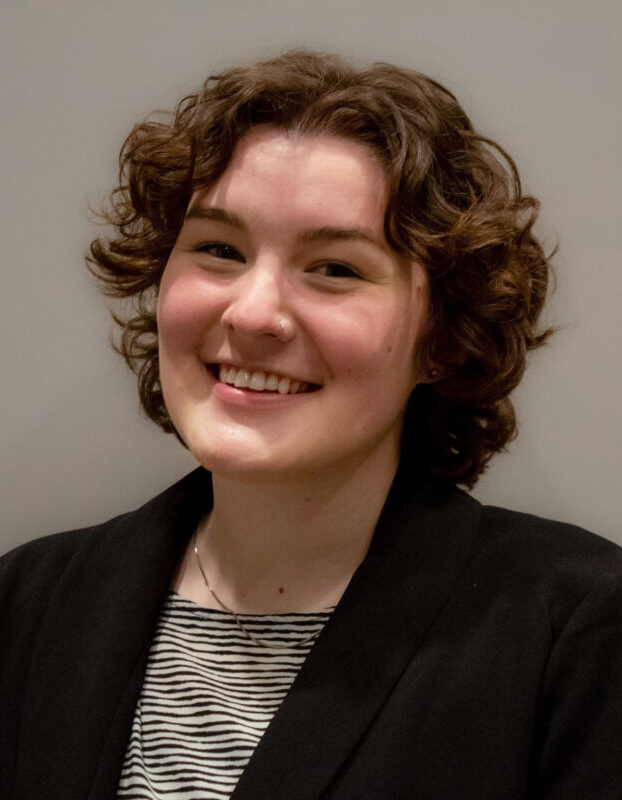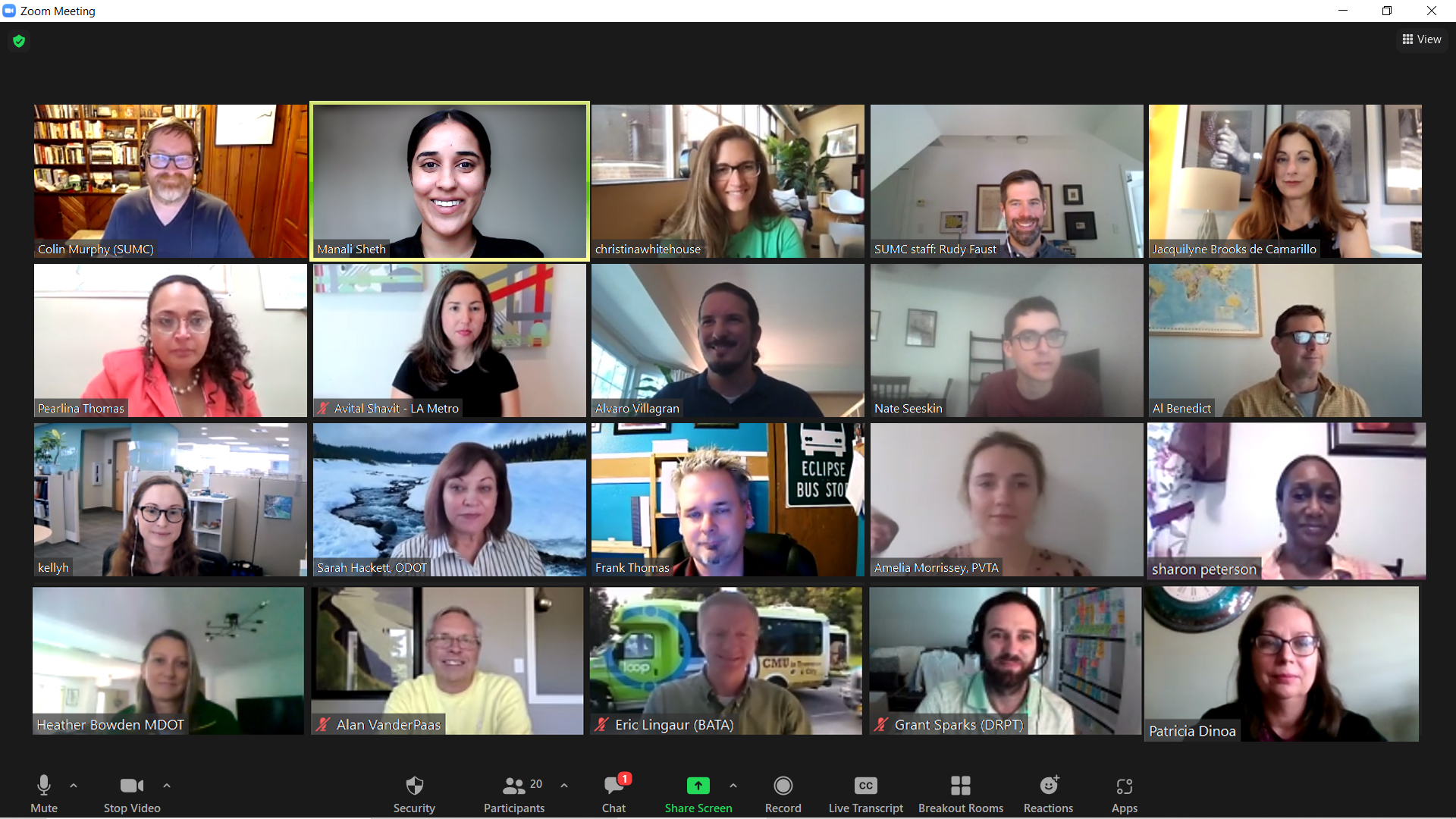
About the Projects
The Mobility Innovation Collaborative consists of two cohorts from the Federal Transit Administration Office of Research and Innovation – IMI Grantees and AIM Grantees.
IMI stands for Integrated Mobility Innovation, and AIM stands for Accelerating Innovative Mobility. There are 24 IMI Grantees and 25 AIM Grantees, all of whom are exploring a range of innovative mobility solutions in their communities. IMI Grantees were awarded their grant in March 2020, and AIM Grantees were awarded their grant in May 2021.
Click on the map below to learn more about the Grantees, their projects, and their transportation organization. The filter on the map offers a guide to help categorize Grantee projects.
All projects are unique in scope and contribute to accelerating mobility innovation in different ways.
Meet the Grantees
- Arrowhead Economic Opportunity Agency
- Baldwin County Commission
- Bay Area Transportation Authority / Michigan Department of Transportation
- Capital Area Transit System
- Cecil County
- Central Ohio Transit Authority
- City of Arlington
- City of Boulder
- City of Wilson / North Carolina Department of Transportation
- Connecticut Department of Transportation
- Cook County Department of Transportation and Highways
- Crawford Area Transportation Authority
- Delaware Transit Corporation
- Georgia Regional Transportation Authority for Atlanta-Region Transit Link Authority
- Grand Gateway Economic Development Association
- Greater Hartford Transit District
- Guam Regional Transit Authority
- Independent Transportation Network
- Indianapolis Public Transportation Corporation
- Iowa Department of Transportation
- Kansas City Area Transportation Authority
- Kitsap County Public Transportation Benefit Area
- Kootenai County
- LA Metro
- Matanuska-Susitna Borough
- Memphis Area Transit Authority (AIM)
- Memphis Area Transit Authority (IMI)
- Metropolitan Transit Authority
- Metropolitan Transit Authority of Harris County
- Minnesota Department of Transportation
- Monongalia Urban Mass Transit Authority Mountain Line Transit
- Montgomery County
- Oregon Department of Transportation
- Pinellas Suncoast Transit Authority
- Pioneer Valley Transit Authority
- Regional Transportation District
- Rhode Island Public Transit Authority
- River Cities Public Transit
- San Joaquin Regional Transit District
- Santa Clara Valley Transportation Authority
- Stark Area Regional Transit Authority
- Tompkins County
- Transit Authority of Lexington Fayette Urban County Government
- Tri-County Metropolitan Transportation District of Oregon
- Virginia Department of Rail and Public Transportation
- Wake County Human Services
- West River Transit Authority Prairie Hill Transit
- Western Reserve Transit Authority
- Whatcom Transportation Authority
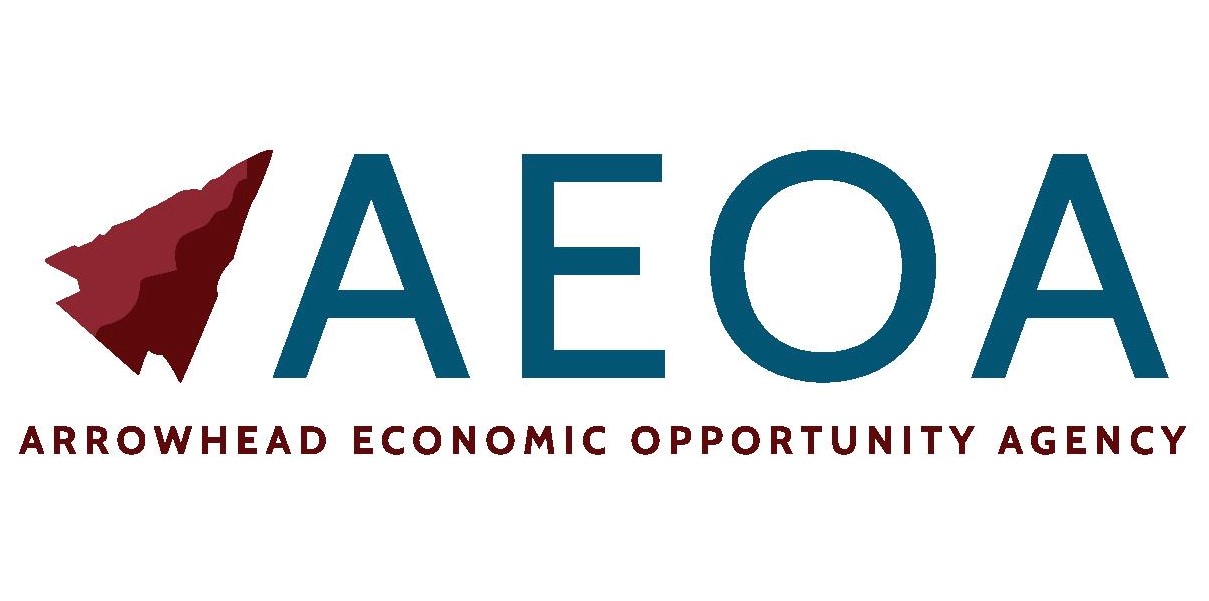
Arrowhead Economic Opportunity Agency
Minnesota
Funding Amount: $952,807
The Arrowhead Economic Opportunity Agency received funding to link rural residents in northeast Minnesota to multiple public transit systems using on-demand transit and private taxi providers to enhance first mile/last mile options for riders. The project includes an online portal and website focused on coordinating rural transportation services.
Project Status: Withdrawn
Project Feature
Lessons Learned from Arrowhead Transit’s IMPACT Pilot Project
Program: IMI
Subgroup: Mobility on Demand
Website: https://arrowheadtransit.com/
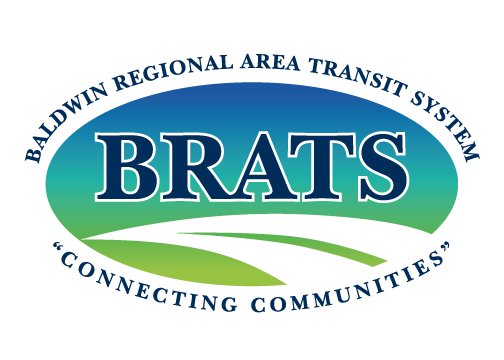
Baldwin County Commission
Alabama
Funding Amount: $260,800
The Baldwin County Commission received funding to create a mobility-on-demand platform to automate routing, scheduling, and dispatching technology. It enhances transit access for all residents of the Mobile area while increasing efficiency, reducing wait times, and improving reliability.
Project Status: Evaluation
Project Feature
A County-Wide Transformation of Demand-Response Service into Microtransit, Baldwin County, Alabama
Program: IMI
Subgroup: Mobility on Demand
Website: https://baldwincountyal.gov/departments/brats-public-bus-transportation
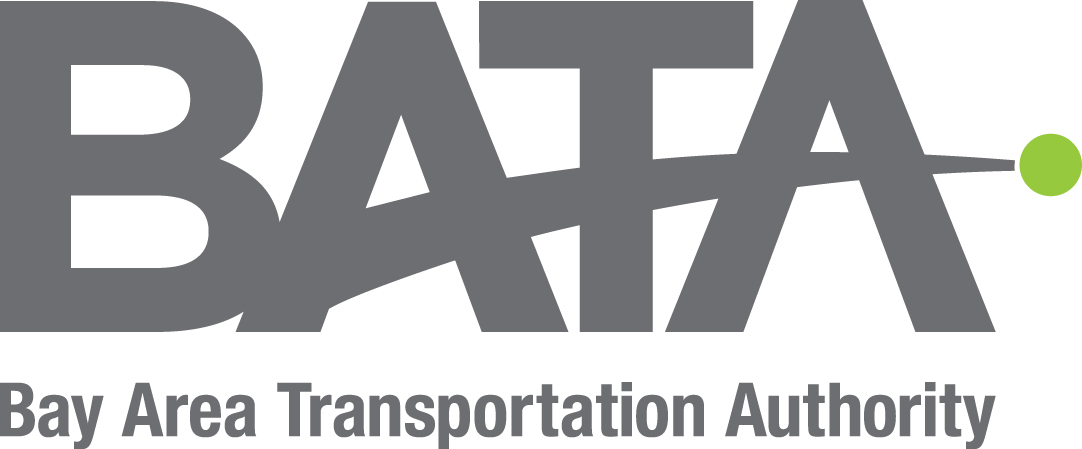
Bay Area Transportation Authority / Michigan Department of Transportation
Michigan
Funding Amount: $276,499
The Michigan Department of Transportation received funding on behalf of three regional agencies in northwest Michigan to develop a mobility-on-demand service to meet the non-emergency medical transportation needs of rural residents. The grant supports technology that consolidates dispatch scheduling, asset condition reports and security systems across the agencies.
Project Status: Evaluation Completed
Project Feature
Lessons from the BATA Link On-Demand Pilot, Traverse City, MI
Meet Eric Lingaur, Communications and Development Director for the Bay Area Transportation Authority
Program: IMI
Subgroup: Mobility on Demand
Website: https://www.bata.net/
Capital Area Transit System
Louisiana
Funding Amount: $250,000
The Capital Area Transit System (CATs) in Baton Rouge received funding to develop software that provides riders with real-time vehicle tracking information and allows them to provide feedback to CATS on cleanliness, maintenance, and other issues. This project is also expected to create new revenue streams by enabling targeted, location-based advertising to transit users.
Project Feature
City Launches On-Demand Microtransit Service, Baker, LA 2022
Program: AIM
Subgroup: Novel Data Sources

Cecil County
Maryland
Funding Amount: $562,845
Cecil County, Maryland, received funding to expand on-demand transit service to increase accessibility and provide more mobility options to people in substance recovery. The project creates a complete trip service model providing access to jobs, school, shopping, legal services, and other vital services.
Project Status: Evaluation
Project Features
Using COMPASS to Navigate Cecil County, MD
A COMPASS Driver Shares Her Story
Roads to Recovery with Cecil Transit’s COMPASS: 2025 Update
Program: IMI
Subgroup: Mobility on Demand
Website: https://www.ccgov.org/government/community-services/cecil-transit
Central Ohio Transit Authority
Ohio
Funding Amount: $1,725,000
The Central Ohio Transit Authority received funding to unify multiple streams of traffic and transit management data on a cloud-based platform and use artificial intelligence to enhance operations, improve safety and efficiency, develop new channels of communication, and improve the rider experience across the region.
Project Status: Demonstration
Project Feature
Program: IMI
Subgroup: Novel Data Sources
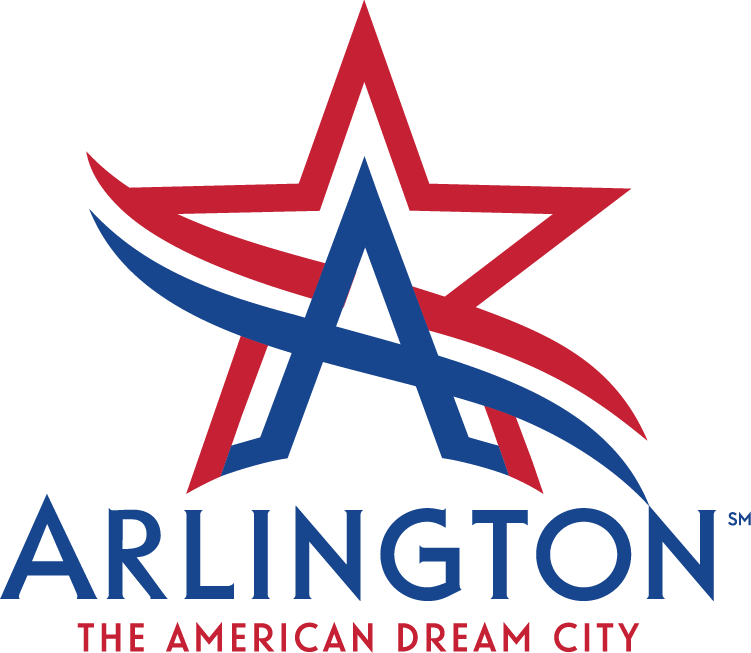
City of Arlington
Texas
Funding Amount: $1,698,558
The City of Arlington received funding to integrate autonomous vehicles into its existing on-demand system operated with the Via car-sharing service. The service includes a wheelchair accessible vehicle and allows University of Texas at Arlington students to ride fare free.
Project Status: Evaluation Completed
Project Features
AVs + Rideshare = RAPID, Arlington, TX
Meet Ann Foss, Principal Planner at the City of Arlington
RAPID AV Program Extends for 2 More Years After Completing Pilot, Arlington, TX, 2022
Mobility Learning Center Forum about RAPID AV Project
Program: IMI
Subgroup: Automation
Website: http://www.arlingtontx.gov/rapid
City of Boulder
Colorado
Funding Amount: $224,000
The City of Boulder received funding to develop autonomous route optimization software to provide on-demand, wheelchair-accessible transportation to older adults, people with disabilities, and low-income individuals. The software will process ride requests and re-organize routes in real time to expand capacity, reduce costs, and better meet rider needs.
Project Status: Planning
Program: IMI
Subgroup: Mobility on Demand
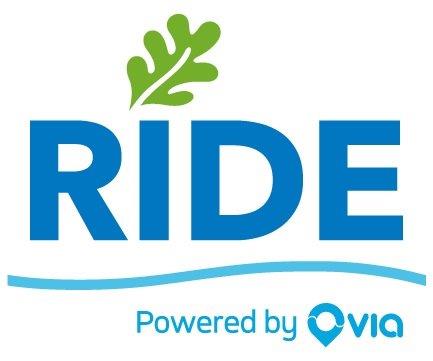
City of Wilson / North Carolina Department of Transportation
North Carolina
Funding Amount: $250,000
The City of Wilson, in rural central North Carolina, received funding to replace its fixed-route transit service with on-demand, rural microtransit to provide more targeted service and solve first/last mile connections. The microtransit system includes accessible vehicles, phone booking, and lower fares.
Project Status: Evaluation Completed
Project Features
Take a RIDE with Me: Highlighting the Adoption of Citywide Microtransit in Wilson, NC
Second MIC Workshop Event Recap
Building Mobility for All: North Carolina’s Statewide Approach to On-Demand Transit
Program: AIM
Subgroup: Mobility on Demand
Connecticut Department of Transportation
Connecticut
Funding Amount: $2,000,000
The Connecticut Department of Transportation is testing automated, electric buses on its CTfastrack bus rapid transit corridor to improve safety for riders with disabilities. Precision, automated docking and platooning will eliminate driver errors that result in wide platform gaps and other unsafe situations and also will reduce delays.
Project Status: Planning
Project Feature
Program: IMI
Subgroup: Automation

Cook County Department of Transportation and Highways
Illinois
Funding Amount: $330,000
The Cook County Department of Transportation and Highways received funding, in partnership with Metra, Pace, and the Chicago Transit Authority, to support public engagement efforts to encourage transit ridership for residents of south Cook County. The project targets outreach to low-income residents and potential new transit customers about reduced fares and seamless travel options across the county’s transit providers.
Project Status: Planning
Project Feature
Program: AIM
Subgroup: Payment Integration
Website: https://www.cookcountyil.gov/agency/transportation-and-highways
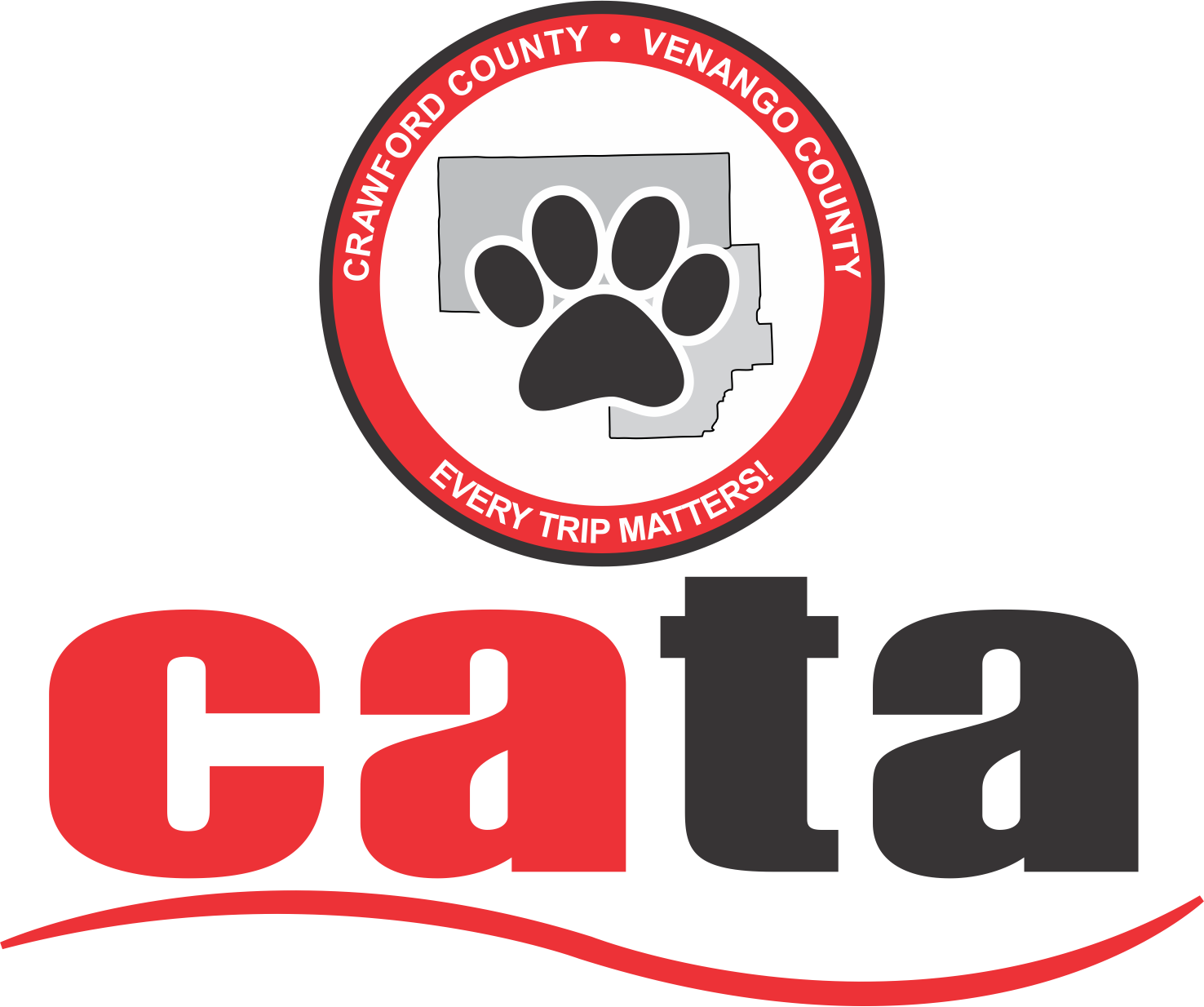
Crawford Area Transportation Authority
Pennsylvania
Funding Amount: $715,233
The Crawford Area Transportation Authority, in rural northwestern Pennsylvania, received funding to develop a unified system for riders taking fixed route and paratransit by combining rider validation for paratransit services with mobile ticketing. The platform will streamline the experience of taking a multi-modal trip for riders on either mode.
Project Status: Demonstration Completed
Program: IMI
Subgroup: Payment Integration
Website: https://www.catabus.org/
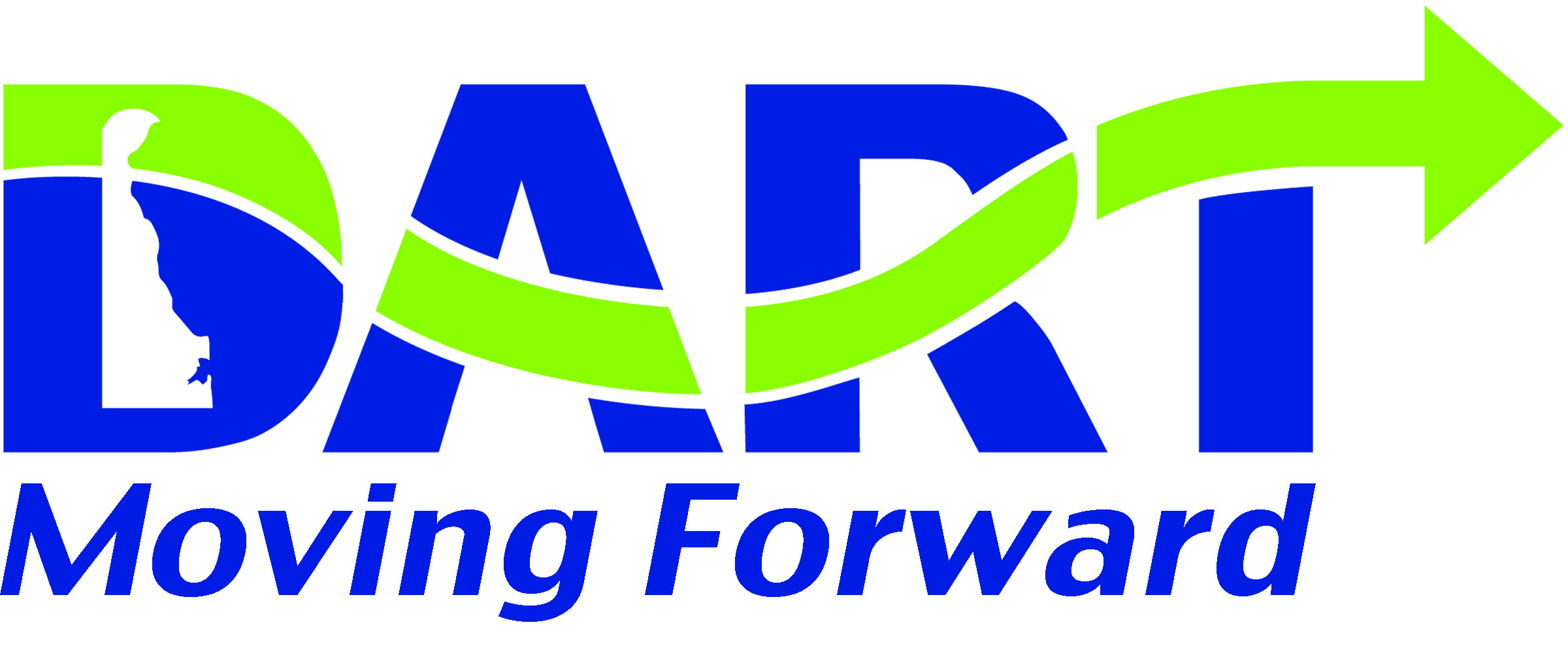
Delaware Transit Corporation
Delaware
Funding Amount: $317,692
Delaware Transit Corporation received funding to partner with the private mobility service, Via, to develop software that integrates fixed-route bus service, paratransit and microtransit in Georgetown. With dynamic fare pricing and trip planning available on one platform, the software expands limited bus service and creates more efficient transportation to jobs and healthcare in rural Sussex County.
Project Status: Demonstration
Project Features
Connecting Rural Communities with DART Connect: On-Demand Microtransit in Sussex County, Delaware
On-Demand Microtransit Service Launched in Rural Areas, Sussex County, DE, 2021
Program: AIM
Subgroup: Multimodal Data Integration
Website: https://www.dartfirststate.com/
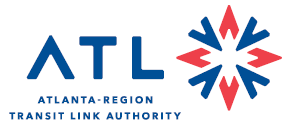
Georgia Regional Transportation Authority for Atlanta-Region Transit Link Authority
Georgia
Funding Amount: $430,400
The Georgia Regional Transportation Authority on behalf of Atlanta-Region Transit Link Authority received funding to develop a multi-modal journey planning application to include live navigation and integrated mobility payment options to provide a seamless passenger experience throughout the Atlanta region.
Project Status: Demonstration
Project Features
Coordination Through Discovery: Developing the ATL RIDES Trip Planning Platform, Atlanta, GA
Program: IMI
Subgroup: Multimodal Data Integration
Website: https://atltransit.ga.gov/
Grand Gateway Economic Development Association
Oklahoma
Funding Amount: $1,514,479
The Grand Gateway Economic Development Association received funding to introduce an integrated, on-demand shared-ride service in 21 rural communities in eastern and central Oklahoma. Using intelligent transportation systems, the project connects four regional rural public transit partners with predictive scheduling and routing technology that helps riders tailor trips to meet their needs.
Project Status: Demonstration
Project Features
Bringing Regional Mobility-On-Demand Service to Rural Oklahoma: A Case Study of PICK Transportation
Rural Agencies Launch Mobility On-Demand Pilot, 21 Counties, OK, 2021
From Pilot to Permanent: The Evolution of PICK Transportation in Oklahoma: 2025 Update
Program: IMI
Subgroup: Mobility on Demand
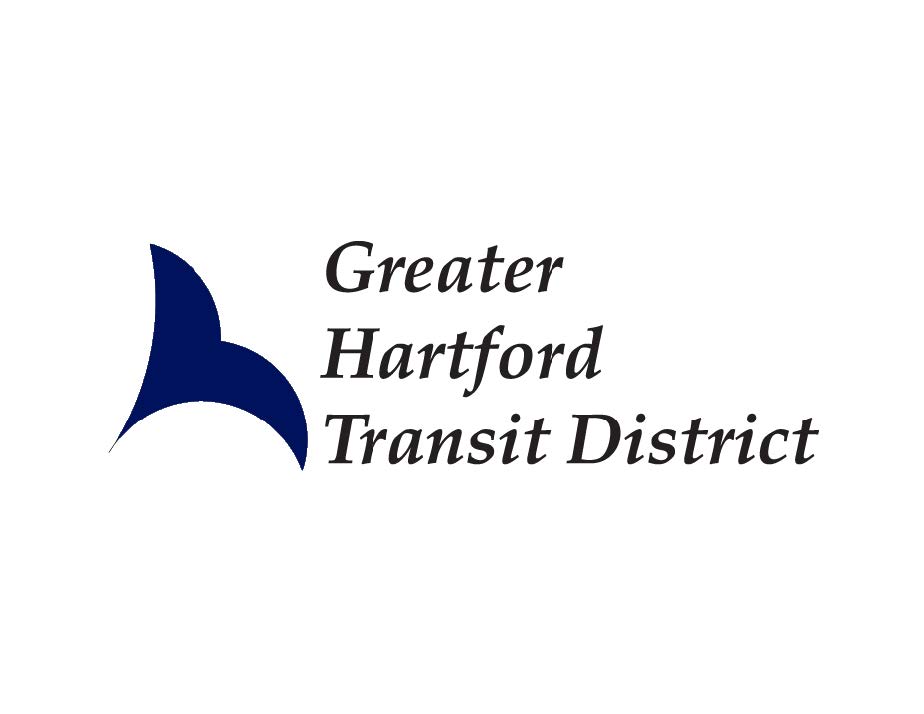
Greater Hartford Transit District
Connecticut
Funding Amount: $630,000
The Greater Hartford Transit District received funding to develop a responsive, 24/7 transportation option for older adults and people with disabilities to fill gaps in service throughout Connecticut. The District partnered with a paratransit provider and uses technology and “smart” routing to improve response times and the traveler experience.
Project Status: Demonstration
Project Feature
Encompass: Enhancing Mobility for Seniors and Individuals with Disabilities
Program: IMI
Subgroup: Mobility on Demand
Website: https://www.hartfordtransit.org/
Guam Regional Transit Authority
Guam
Funding Amount: $1,950,106
The Guam Regional Transit Authority will introduce on-demand transit service to expand connections between rural communities and the island’s Naval Base to the island’s commercial centers. GRTA will provide eight accessible vehicles and incorporate technologies to allow on-demand trip scheduling and mobile payments.
Project Status: Planning
Program: AIM
Subgroup: Mobility on Demand

Independent Transportation Network
Maine
Funding Amount: $1,658,025
The Independent Transportation Network received funding to expand its mobility-on-demand transit model designed for older adults and people with disabilities in Portland, Maine, to new rural communities in Maine, Kentucky and California. Using an automated routing and scheduling platform, it increases access to trips.
Project Status: Demonstration
Program: IMI
Subgroup: Mobility on Demand
Website: https://www.itnamerica.org/

Indianapolis Public Transportation Corporation
Indiana
Funding Amount: $400,000
The Indianapolis Public Transportation Corporation (IndyGo) received funding to create a technology platform and enhanced customer service effort to combine trip planning and payment integration into a single system. The project will provide riders with transportation options across public, nonprofit, and private mobility providers through an app or call center.
Project Status: Planning
Project Feature
IndyGo Launches Microtransit Service in Southeastern Indianapolis, IN 2022
Program: AIM
Subgroup: Multimodal Data Integration
Website: https://www.indygo.net/
Iowa Department of Transportation
Iowa
Funding Amount: $120,000
The Regional Transit Authority of northeast Iowa received funding to modernize its demand-response transportation services in Delaware, Dubuque, and Jackson counties. Improvements include an app with real-time transit information, a scheduling website, and an online platform for agencies to coordinate shared trips and reduce duplication of services.
Project Status: Demonstration
Program: AIM
Subgroup: Mobility on Demand

Kansas City Area Transportation Authority
Missouri
Funding Amount: $600,000
The Kansas City Area Transportation Authority (KCATA) received funding to equip buses with an advanced driver assistance system that uses precision guidance sensors to dock at stations and provide level boarding across the agency’s bus rapid transit system. The project will improve accessibility and reduce dwell time, providing a better customer experience.
Project Status: Planning
Project Feature
Program: AIM
Subgroup: Automation
Website: https://www.kcata.org/

Kitsap County Public Transportation Benefit Area
Washington
Funding Amount: $372,910
Kitsap Transit, across the Puget Sound from Seattle, received funding to design a model for a high-speed passenger ferry powered by battery-electric, low-emission technology. The state-of-the-art hydrofoil design will rely on lightweight carbon fiber construction and batteries to speed up travel between urban centers and suburban and rural communities and significantly reduce fuel use compared to conventional fast ferries.
Project Status: Planning
Project Feature
Innovative All-Electric Fast Ferry Zero-Emissions Marine Transportation
Meet Kelly Houck, Capital Administrative Associate at Kitsap Transit
Program: AIM
Subgroup: Novel Data Sources
Website: http://www.kitsaptransit.com
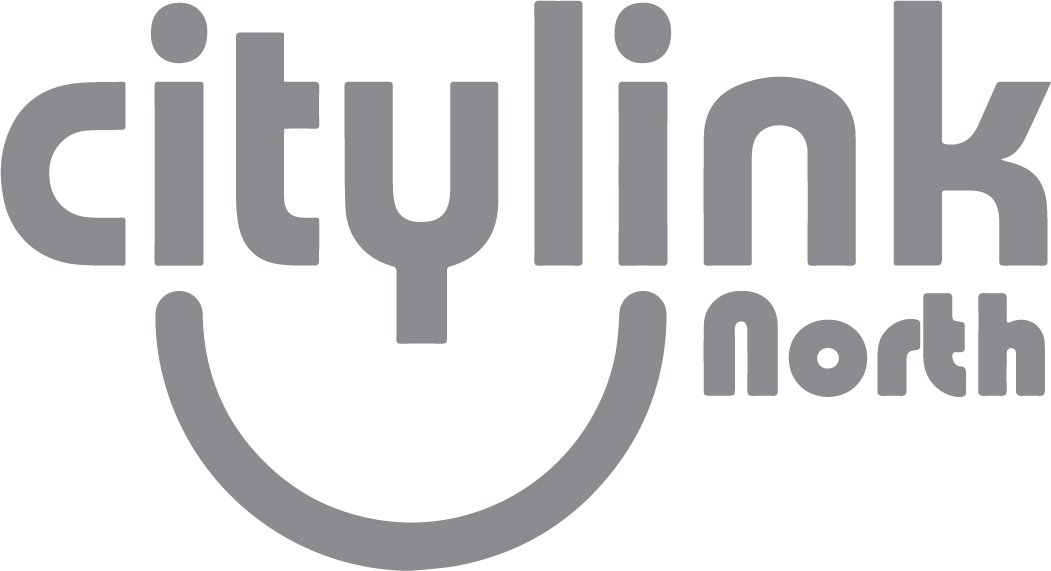
Kootenai County
Idaho
Funding Amount: $150,000
Kootenai County received funding to explore an open architecture fare payment system. The project closes gaps in transportation services in Idaho’s second-most populous region, while determining cost effective and efficient transportation options and solutions for riders.
Project Status: Planning
Project Feature
Mobility Platform, Kootenai County, ID, 2020
Program: IMI
Subgroup: Multimodal Data Integration
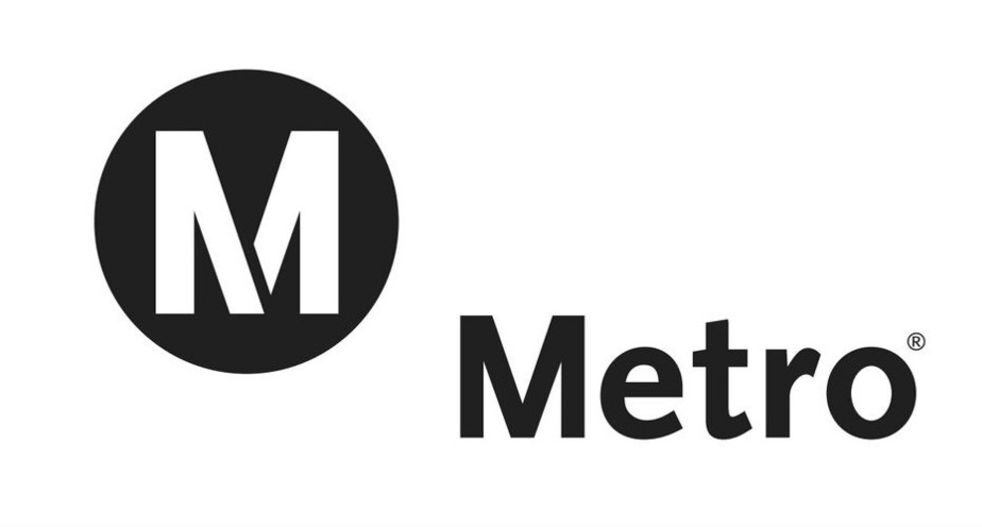
LA Metro
California
Funding Amount: $700,000
The Los Angeles County Metropolitan Transportation Authority (LA METRO) received funding to work with researchers and technology firms to encourage new ways to travel, including transit, rideshare and vanpooling.
Project Status: Planning
Project Feature
Program: AIM
Subgroup: Novel Data Sources
Website: https://www.metro.net/projects/oei/
Matanuska-Susitna Borough
Alaska
Funding Amount: $231,191
The Matanuska-Susitna Borough received funding on behalf of four rural transit providers to implement a platform that centralizes dispatch, fleet management, call-taking and payment across providers. The system assigns trips to the lowest-cost, eligible provider and allows riders flexible request and payment options.
Project Status: Demonstration
Project Feature
Centralizing Dispatch Services in a Primarily Rural Alaskan Borough
Program: IMI
Subgroup: Multimodal Data Integration

Memphis Area Transit Authority (AIM)
Tennessee
Funding Amount: $483,000
Memphis Area Transit Authority (MATA) has received funding for both the IMI and AIM Grant. Under the AIM funding, the Memphis Area Transit Authority (MATA) received funding to develop a fare collection system that incorporates MATA and other mobility options in the Memphis area, including micro-transit and ride-hailing services, van pools, and medical and human services transportation. The project develops a one-stop-shop website for multimodal mobility information.
Project Status: Demonstration
Project Feature
Meet John Lancaster, Chief Development Officer at the Memphis Area Transit Authority
Program: AIM
Subgroup: Payment Integration
Website: https://www.matatransit.com/

Memphis Area Transit Authority (IMI)
Tennessee
Funding Amount: $394,000
Memphis Area Transit Authority (MATA) has received funding for both the IMI and AIM Grant. Under the IMI funding, the Memphis Area Transit Authority received funding to implement a micro-transit on-demand project in the Boxtown/Westwood neighborhood of Memphis, a low-density, suburban neighborhood with a large elderly population and infrequent transit service. Riders are able to request rides using a mobile application or call center to destinations such as healthcare, grocery stores or government services, as well as connect to the existing transit network.
Project Status: Demonstration Completed
Project Feature
Urban Transit Agency to Launch Microtransit Service, Memphis, TN, 2021
A Ready! Rider Shares Their Story
A Ready! Driver Shares His Story
Meet John Lancaster, Chief Development Officer at the Memphis Area Transit Authority
Program: IMI
Subgroup: Mobility on Demand
Website: https://www.matatransit.com/
Metropolitan Transit Authority
New York
Funding Amount: $180,000
The Metropolitan Transit Authority (MTA) received funding to partner with Prover Technology Inc. to demonstrate the benefits of integrating new technology into communications-based train control. The project will illustrate the potential benefits of an innovative service delivery model for train control systems and result in improved safety, cost savings, and expedited project delivery.
Project Status: Planning
Program: IMI
Subgroup: Novel Data Sources

Metropolitan Transit Authority of Harris County
Texas
Funding Amount: $1,473,435
The Metropolitan Transit Authority of Harris County (Houston Metro) received funding for an automated electric shuttle bus to serve Texas Southern University, the University of Houston and Houston’s Third Ward community. The shuttle will connect to Metro buses and light rail and be studied for potential use in urban, suburban, and rural environments.
Project Status: Planning
Program: AIM
Subgroup: Automation
Minnesota Department of Transportation
Minnesota
Funding Amount: $628,000
The Minnesota Department of Transportation received funding for a regional platform to enable multi-modal trip planning and payment for residents in a 13-county area in southern Minnesota. The project will integrate transportation services across rural, small urban and large urban communities and inform strategies for increasing transit ridership and improving service quality, especially in rural areas.
Project Status: Planning
Project Feature
MaaS in Minnesota: Developing a Regional Trip Planning Platform
Program: AIM
Subgroup: Multimodal Data Integration
Monongalia Urban Mass Transit Authority Mountain Line Transit
West Virginia
Funding Amount: $40,000
The Monongalia Urban Mass Transit Authority on behalf of Mountain Line Transit Authority (MLTA), received funding to create an integrated fare payment system for riders of MLTA buses and West Virginia University’s on-demand transit system and drivers using municipal parking lots in and around Morgantown, W.V. The unified payment will improve access to jobs and healthcare in Morgantown while providing contactless payment via an online, smart phone-enabled application.
Program: AIM
Subgroup: Payment Integration
Montgomery County
Maryland
Funding Amount: $468,820
Montgomery County, Maryland, received funding to develop a regional electronic fare payment system to improve options for riders and allow them to more easily move between systems in the Washington Metropolitan area. The system will electronically validate transit transfers and expand the ability to pay using smart phones.
Project Status: Evaluation
Program: AIM
Subgroup: Payment Integration
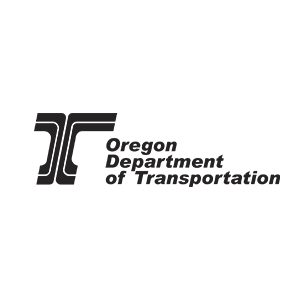
Oregon Department of Transportation
Oregon
Funding Amount: $480,000
The Oregon Department of Transportation received funding to build a web-based repository of transit data, census data and open-source software. The project will build a user interface providing near-real time and historical transit network information to planners at the local, state and federal levels to support planning, investment, and management of large transit networks.
Project Status: Planning
Program: AIM
Subgroup: Novel Data Sources

Pinellas Suncoast Transit Authority
Florida
Funding Amount: $120,000
The Pinellas Suncoast Transit Authority received funding to integrate its Direct Connect program, which connects riders in areas with low-frequency transit service to subsidized on-demand trips, into its mobile app. This project will offer riders a simple way to plan and book multimodal trips.
Project Status: Planning
Program: AIM
Subgroup: Multimodal Data Integration
Website: https://psta.net/

Pioneer Valley Transit Authority
Massachusetts
Funding Amount: $617,000
The Pioneer Valley Transit Authority in western Massachusetts received funding to install on-bus technology to modernize fare payment and data collection. In addition to improving the rider experience, the new fare system includes interactive dashboards to track rider travel patterns to support service planning and other modeling efforts.
Project Status: Demonstration
Project Feature
Program: AIM
Subgroup: Novel Data Sources
Website: http://pvta.com/

Regional Transportation District
Colorado
Funding Amount: $687,000
The Regional Transportation District (RTD) in Denver received funding for a multi-modal trip platform to integrate RTD bus and rail with inter-city bus and microtransit travel services, allowing riders to plan for multimodal trips with integrated fare options.
Project Status: Demonstration
Program: AIM
Subgroup: Multimodal Data Integration
Website: https://www.rtd-denver.com/
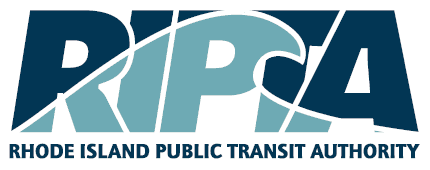
Rhode Island Public Transit Authority
Rhode Island
Funding Amount: $244,000
Rhode Island Public Transit Authority (RIPTA) received funding to use GPS technology to enable free transit rides for passengers who use farecards and board at designated stops. Ridership and other data will inform future fare incentive programs, both in Rhode Island and nationally.
Project Status: Demonstration
Project Feature
RIPTA is making Wave(s) with their Ride Free in Central Falls Program
Program: AIM
Subgroup: Novel Data Sources
Website: http://ripta.com
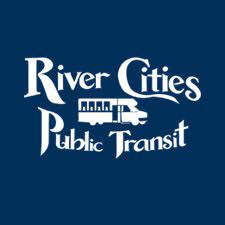
River Cities Public Transit
South Dakota
Funding Amount: $401,760
River Cities Public Transit received funding to expand a program that provides transportation for oncology patients to a large hospital in central South Dakota to all types of patients within a 60-mile radius. The project features an integrated single payment system and allows Avera St. Mary’s Hospital to hire a full-time transportation coordinator to advocate the service.
Project Status: Demonstration
Project Feature
Partnering to Reduce Missed Medical Appointments, Pierre, SD
Meet Chuck Quinn, Director of Special Projects for River Cities Public Transit
Program: IMI
Subgroup: Payment Integration
Website: https://www.rcptransit.com
San Joaquin Regional Transit District
California
Funding Amount: $306,000
The San Joaquin Regional Transit District received funding to create standard payment integration and trip planning apps across local and regional transit providers. Riders are able to access and pay for services by multiple providers on the same trip. The project includes marketing and rider-education strategies.
Project Status: Demonstration
Program: IMI
Subgroup: Multimodal Data Integration
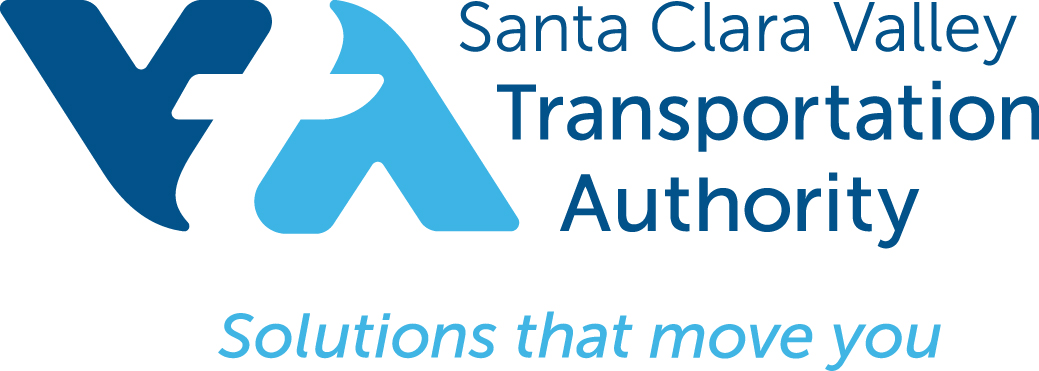
Santa Clara Valley Transportation Authority
California
Funding Amount: $2,331,000
Santa Clara Valley Transportation Authority (VTA) is partnering with Western Reserve Transit Authority to deploy automated electric vehicles designed for accessibility in Mahoning Valley, Ohio and Santa Clara Valley, California to augment fixed-route bus and paratransit services. The two locations will test the ability of the AVs to provide more efficient and cost-effective service under different climates and operating conditions.
Project Status: Demonstration
Program: AIM
Subgroup: Automation
Website: https://www.vta.org

Stark Area Regional Transit Authority
Ohio
Funding Amount: $1,997,503
The Stark Area Regional Transit Authority received funding to develop an innovative alternative payment system for mobility, business and personal applications targeted to low-income, disadvantaged, disabled, student, elderly and other underserved populations.
This project is managed by NEORide, CALSTART, and Cleveland State University.
Project Status: Demonstration
Project Feature
One Account, Many Transit Agencies: Integrating Transit Payments with NEORide EZfare
Program: IMI
Subgroup: Payment Integration
Website: https://www.neoride.org/
Tompkins County
New York
Funding Amount: $820,000
Tompkins County received funding to develop a multi-modal trip planning platform that integrates information on bus services, demand-response service, taxis, volunteer transportation, car-share, and bike-share services. The platform will enable riders in rural upstate New York to plan multi-modal trips through a mobile app and web platform.
Project Status: Planning
Project Feature
Tconnect Microtransit Service Expands to Dryden, NY 2021
Meet Dwight Mengel, Chief Transportation Planner at Tompkins County Department of Social Services
Program: IMI
Subgroup: Multimodal Data Integration

Transit Authority of Lexington Fayette Urban County Government
Kentucky
Funding Amount: $422,625
The Transit Authority of the Lexington Fayette Urban County Government received funding to develop a platform to provide real-time vehicle and demand information for transportation options on the University of Kentucky campus. The platform will allow students to book a ride while dispatchers manage vehicle capacity and support social distancing efforts during the COVID-19 public health emergency.
Project Status: Planning
Program: AIM
Subgroup: Multimodal Data Integration
Website: https://lextran.com/

Tri-County Metropolitan Transportation District of Oregon
Oregon
Funding Amount: $1,812,282
TriMet received funding to develop a mobility payment system that integrates payment for multiple modes into a single transaction. The project builds on TriMet’s multimodal trip planner to reduce travel stress with better real-time arrival predictions.
Project Status: Evaluation Completed
Project Feature
Meet Bibiana McHugh, Manager of Mobility and Location-Based Services at TriMet
Second MIC Workshop Event Recap
The Building Blocks of Smart Mobility: TriMet’s Open Systems Approach to Transit Modernization
Program: IMI
Subgroup: Novel Data Sources
Website: https://trimet.org/
Virginia Department of Rail and Public Transportation
Virginia
Funding Amount: $160,930
The Virginia Department of Rail and Public Transportation received funding to provide microtransit in rural communities in the Tidewater region. The project augments existing transit resources by leveraging mobile technology for real-time trip booking and vehicle routing, providing real-time, demand-response microtransit service.
Project Status: Demonstration
Project Feature
Rural Virginia Transit Agencies Pilot Microtransit Services, Gloucester and Wise Counties, VA 2021
Meet Wood Hudson, Transit Planner with the Virginia Department of Rail and Public Transportation
Program: IMI
Subgroup: Mobility on Demand
Website: http://drpt.virginia.gov/
Wake County Human Services
North Carolina
Funding Amount: $393,527
Wake County Human Services received funding to initiate an on-demand service to provide residents in rural areas with greater access to jobs, school, healthcare, and other services. The organization is launching microtransit services that provide a “first five-mile, last five-mile” approach to connect rural residents with more distant services.
Project Status: Demonstration
Project Feature
Fare-Free Microtransit Service Begins in Northeast Wake County, NC 2022
Bridging the First and Last 5 Mile Gap: Microtransit in Northeast Wake County, NC
A GoWake SmartRide NE Driver Shares His Story
Building Mobility for All: North Carolina’s Statewide Approach to On-Demand Transit
Program: IMI
Subgroup: Mobility on Demand
West River Transit Authority Prairie Hill Transit
South Dakota
Funding Amount: $308,912
Prairie Hills Transit (PHT), which serves 15 rural communities in western South Dakota, received funding to automate its paratransit dispatch system using AI technology. The system collects real-time field data to replace most radio communication, allowing PHT to manage more rides with the same number of dispatchers and decrease costs.
Project Status: Demonstration
Program: AIM
Subgroup: Mobility on Demand

Western Reserve Transit Authority
California & Ohio
Funding Amount: $2,331,000
Western Reserve Transit Authority is partnering with the Santa Clara Valley Transportation Authority to deploy automated electric vehicles designed for accessibility in Mahoning Valley, Ohio and Santa Clara Valley, California to augment fixed-route bus and paratransit services. The two locations will test the ability of the AVs to provide more efficient and cost-effective service under different climates and operating conditions.
Project Status: Demonstration
Program: AIM
Subgroup: Automation
Website: http://www.wrtaonline.com

Whatcom Transportation Authority
Washington
Funding Amount: $719,388
The Whatcom Transportation Authority received funding to provide on-demand transit service to residents in the small city of Lynden in northwest Washington. A new on-demand mobile app allows seniors, school-aged children, people with disabilities, and people with limited income to hail an accessible van to any destination within the city.
Project Status: Demonstration
Project Feature
Whatcom Transportation Authority Launches Microtransit Pilot, Lynden, WA, 2021
The Lynden Hop’s Legacy: Lessons Learned From Operating Microtransit In-House
Program: IMI
Subgroup: Mobility on Demand
Website: http://www.ridewta.com/
About the Shared-Use Mobility Center
The Shared-Use Mobility Center is a public-interest organization dedicated to achieving equitable, affordable, and environmentally sound mobility across the United States through the efficient sharing of transportation assets.
SUMC seeks to extend the benefits of shared mobility for all by:
- connecting the public and private sectors;
- piloting programs;
- conducting new research;
- and providing policy and technical expertise to cities and regions.
Meet the Shared-Use Mobility Center Team Working with Grantees
Abby brings her expertise in regional planning and development to the SUMC team as a program associate since 2024. With a focus on supporting the Chicago team, she plays a pivotal role in advancing the Mobility Learning Center, driven by her commitment to fostering equitable, safe, and sustainable transportation solutions. Abby’s professional journey has instilled in her a profound interest in micro-mobility and micro-transit, recognizing their potential to enhance mobility within communities.
Holding a B.S. in environmental science from the University of Wisconsin – Green Bay and an MA in Sustainable Urban Development from DePaul University, Abby’s academic pursuits culminated in a thesis exploring the historical context of walkability and infrastructure in the United States. Her passion for creating more accessible and resilient urban landscapes continues to drive her work.
As a program associate at SUMC, Francesca supports various initiatives across the organization, contributing to technical assistance work for the Federal Transit Administration’s mobility innovation programs and capacity-building efforts to support the USDOT Thriving Communities Program. Francesca is passionate about advancing environmental stewardship to improve mobility and enhance quality of life.
Francesca holds a Bachelor of Science in Geography, with a focus on Environmental Studies and Urban Studies, from Illinois State University. Before joining SUMC, they served as a regional planner at Tri-County Regional Planning Commission (IL) and McLean County Regional Planning Commission, contributing to various community and regional initiatives for metropolitan planning organizations (MPOs) in central Illinois.
Colin leads the Payment Innovation and Novel Applications for Data subgroups for the Mobility Innovation Collaborative.
Colin works on SUMC’s research efforts, with an emphasis on newer shared modes’ interaction with existing transportation networks and their potential to transform our cities. Colin led all four of SUMC’s TCRP projects, wrote TRCP Research Reports 188, 195, 196, and 230, covered the shared mobility world from ridehailing to e-scooters, and examined how it works best with public transit. Colin also works on teams for several other research and consulting projects at SUMC.
Hani comes to SUMC with a passion for transportation and a drive to make it sustainable, equitable, and accessible. As a Senior Program Coordinator, Hani works on a wide variety of projects, primarily with the Mobility Innovation Collaborative team helping provide technical assistance to transit agencies around the country working on innovative transportation pilot projects and sharing lessons learned. He is also particularly interested in micromobility and exploring how it interacts and integrates with wider transportation networks.
Alvaro leads the Mobility on Demand and the Automation subgroups for the Mobility Innovation Collaborative.
Alvaro’s work at SUMC focuses on providing technical assistance to agencies developing a wide array of innovative mobility projects, including: microtransit, mobility-as-a-service, mobility hubs, accessible on-demand programs, autonomous vehicles, and micro mobility integration to transit.

